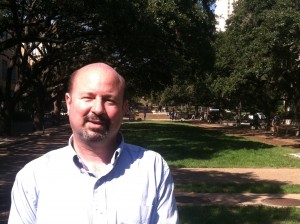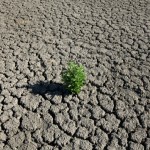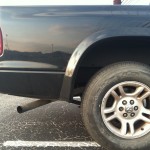Fire, Drought and the Climate Wars: A Talk with Michael Mann

Photo by Mose Buchele
Professor Michael Mann is the Director of the Earth System Science Center at Penn State University and author of the famous "hockey stick" graph.
In 2010 Dr. Michael Mann, already world-renowned (and, in some corners, infamous) for linking global warming to CO2 emissions, published an editorial in the Washington Post.
Mann had recently seen many of his emails hacked and leaked in an unsuccessful attempt to discredit his work. He was also facing a lawsuit (also, ultimately, unsuccessful) by climate change skeptic Virginia Attorney General Ken Cuccinelli. The editorial Mann wrote was aimed at his critics, but it also served as a summary of his own findings and of the scientific consensus on climate change.
“Overloading the atmosphere with carbon dioxide from burning fossil fuels is heating the planet, shrinking the Arctic ice cap, melting glaciers and raising sea levels,” he wrote. “It is leading to more widespread drought, more frequent heat waves and more powerful hurricanes.”
Two years later, in the lead up to this week’s SXSW Eco Conference, we had the chance to ask Mann what, if anything, has changed.
Mann: What we are seeing is that things are happening even faster than we had projected. Whether you’re talking about arctic sea ice decline, or whether you’re talking about the record heat and drought and wildfire that we saw here in the U.S. this summer and the previous summer.
StateImpact Texas: Often this debate, on both sides, is couched as a ‘Us versus Them’ thing. Is there a place where the science is right now, where reasonable people may be able to disagree?
Mann: Those of us who study the science of climate change really wish we were having that worthy debate about uncertainties that do exist because they do have implications. For example, when it comes to predicting how rainfall patterns, and seasonal temperature patterns will shift at regional scales, be it here in Texas or be it up in Pennsylvania, where I live.
We aren’t quite there yet. We are not quite at the point where we can make confident projections of how those regional weather patterns will change. And unfortunately, in our public discourse, we are still stuck in this unworthy debate about whether or not the problem really exists, which prevents us from getting into the good faith debate on what we can do about the problem.
SIT: Last year in Texas we saw historic drought, now we’ve seen that drought creep over to other parts of the country even though it dissipated a bit here. We also saw historic wildfires. And In short order, we began to hear researchers draw a link between global climate change trends and what we were seeing here on the ground. Do you think there is a link be made there?
Mann: Yeah, there is a link. And the way to think about it isn’t in terms of specific events, that this particular wildfire or this particular heat wave, was caused by climate change. But to look at what’s unfolding collectively.
Think of these individual weather events as the random rolls of a die, of a six-sided die. What we are doing with climate change is we are loading those dice. So sixes are coming out … Well it turns out, if you look at record breaking heat in the U.S. over the last decade, we have seen all-time heat records broken at twice the rate we would expect from chance alone. Over the past year we’ve seen those records broken at ten times of the rate you would expect from chance alone. That’s like sixes coming up ten times as often as you would expect.
As that becomes recognized by the people of Texas and the people of Oklahoma, by farmers, by other stakeholders, I think we will see increasing demand for action to be taken regardless of the political persuasions of the states that we are talking about.

